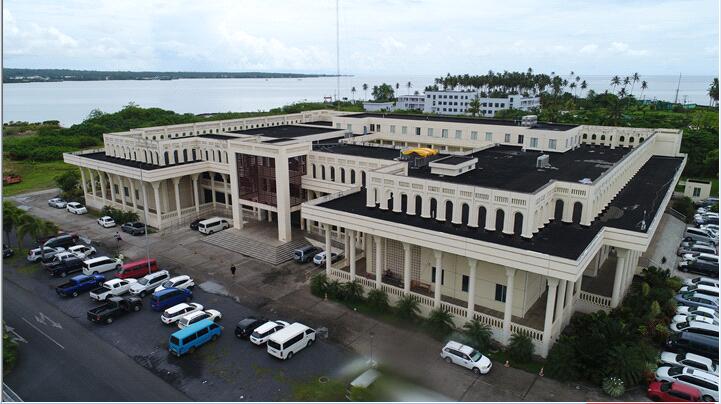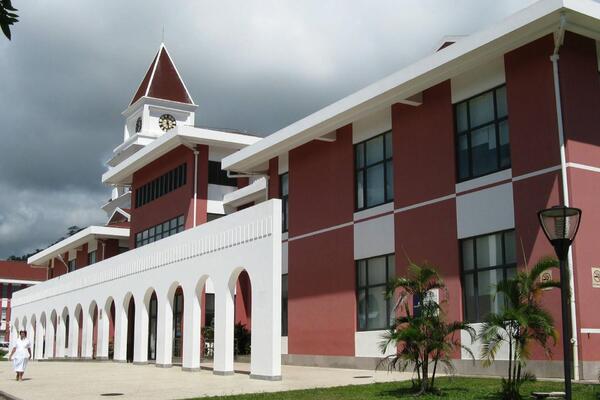The Court of Appeal says the removal of the caveat on Tuloto land where the Samoa Stationery and Books, is now located is deemed unlawful.
The decision handed down by Chief Justice, His Honour Satiu Simativa Perese, Justice Peter Blanchard and Justice Rhys Harrison, in an 11 page ruling upheld the appeal and ordered for the caveat on the land in question to be re-registered.
There are two appeals, firstly between Ruby Drake and Attorney Genera for the Ministry of Natural Resources and Environment and the second appeal is between Clara Aitele Gray as the Administrator of the Estate of Kerita Maria Kolokita Pune against AG’s office; Samoa Breweries and SSAB.
The SSAB and Samoa Breweries were not represented says the ruling.
In way of background, Molioo Vaeluaga received conveyance of land as a gift from his father Leilua in 1995.
In 2002 Leilua’s sister challenged the validity of the conveyance and the case went to trial; however the Late Chief Justice Sapolu failed to deliver any judgement until 15 July, 2014 no reasons for judgment until 2016 only after pressure from the Court. The Chief Justice Spolufound that undue influence has been proven against Molio’o.
The ruling says Molioo died however the title to the land remains in his name. It was subject to a mortgage to Samoa Breweries Limited to secure advances made on a revolving credit account.
After his death the trading account eventually fell into arrears and Breweries then exercised its power of sale under the mortgage and agreed to sell the land to the SSAB, a company owned by Fiti Leung Wai the wife of then AG Aumua Ming Leung Wai.
“But the caveat would prevent that transaction from being implemented by registration of an instrument of transfer.”
In December 2013 lawyer for Samoa Breweries, Herman Kruse wrote to Registrar of Land pointing out the that Samoa Breweries had foreclosed on Vailima distributors and that the caveat preventing settling of an agreement.
However 12 days later ACEO of the Land Management Office wrote on behalf of the Registrar to Drake and Company, whose office had been appointed in the caveat.
That letter indicated that Ming Leung Wai (then AG) lodged an application to remove the caveat. It also pointed out the caveat to be withdrawn and after the lapse of 21 days the registrar will remove the caveat.
Drake challenged the timing as noted by the Land Registrar. In 2014, the family commenced proceedings agains Mrs Ruby Drake for negligence and not preventing the removal of the caveat and SSAB.
The matter was heard before Justice Nelson and in addition questions to the lawfulness of the removal of the caveat by the Land Registrar and effects of Chief Justice Sapolu’s order.
The caveat was for reasons not explained, restored to the Lands Registrar. Nelson ruled to uphold the earlier decision by the Chief Justice, noting that 21 day period was lapsed.
The appeal’s court in its ruling says the letter from Samoa Breweries did not meet the requirements under the Lands Registrar Act as there was no instrument presented for registration against the title of the land.
“But, instead of pointing that out to [Samoa Breweries] and rejected his application, the Assistant CEO seems to have made a decision unexplained in her affidavit to treat the letter as an application under section 55 instead.
“It is questionable whether she could do this without a written approve from the applicant, but we place no emphasis on this point for it is abundantly clear the letter that she wrote was not a valid Registrar’s notice under section 55.
It named Aumua Ming Leung Wai who was not a caveatee as he had no estate or interest in the land.
The notice from the Land Registrar was non complaint with section 55, it could not start the 21 days time period and that Drake had no need as a matter of law, to take any action in response to such an invalid notice.
The court of appeal ruled to allow the appeal and ordered the Land Registrar to re-register the caveat against the title.
The appellant are entitled to their costs in the Supreme Court to be taxed and court costs of $5,000 each and all such costs to be paid to the respondent Ministry.










